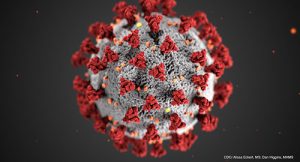 A new analysis of COVID-19 patients with rheumatic disease in the COVID-19 Global Rheumatology Alliance registry found that odds of hospitalization for COVID-19 were higher for patients with prednisone exposure of ≥10 mg/day and lower for those who received anti-tumor necrosis factor (TNF) therapy.1
A new analysis of COVID-19 patients with rheumatic disease in the COVID-19 Global Rheumatology Alliance registry found that odds of hospitalization for COVID-19 were higher for patients with prednisone exposure of ≥10 mg/day and lower for those who received anti-tumor necrosis factor (TNF) therapy.1
The study, by Milena Gianfrancesco, PhD, MPH, assistant professor in the School of Medicine, University of California, San Francisco, and colleagues, also revealed that exposure to neither conventional disease-modifying anti-rheumatic drugs (DMARDs) nor non-steroidal anti-inflammatory drugs (NSAIDs) were associated with increased odds of hospitalization. The findings were published May 29 in the Annals of the Rheumatic Diseases.1
This study uses data from the COVID-19 Global Rheumatology Alliance registry, a voluntary registry of COVID-19 patients with rheumatic disease with data on more than 3,000 patients.2 “The registry is really an amazing global collaboration of patients, rheumatologists and organizations all coming together to overcome barriers to gathering information that really is changing practice,” says study co-author Philip Robinson, MBChB, PhD, associate professor at the faculty of medicine, University of Queensland and senior staff specialist in rheumatology at the Royal Brisbane Hospital, both in Brisbane, Australia. “I have had feedback from multiple people about how valuable the work of the registry is for guiding their clinical practice with their patients.”
Building on several small case studies, these researchers evaluated 600 cases of COVID-19 patients with rheumatic disease from 40 countries, and assessed demographic and clinical factors associated with hospitalization. Overall, nearly half of these patients were hospitalized.
Some reports have cautioned against the use of NSAIDs in patients with COVID-19, despite a lack of published data showing deleterious effects. The new data should reassure clinicians and patients that NSAIDs do not increase the risk of hospitalization due to SARS CoV-2.
“The knowledge we had about this prior to [the release of these] data was essentially none, so I didn’t have a good idea about which way it would go,” says Dr. Robinson. “I would probably say I was pleasantly surprised how rheumatology patients did. The concern was that they would do badly, and they don’t seem to have dramatically poorer outcomes [than] other patients.”
The investigators found that, as with the general population, people with rheumatic diseases who are older than 65 and/or have certain comorbidities, such as hypertension, cardiovascular disease and diabetes, had higher odds of COVID-19-related hospitalization. Overall, 9% of the patients died, demonstrating that most COVID-19 patients with rheumatic disease recover.



